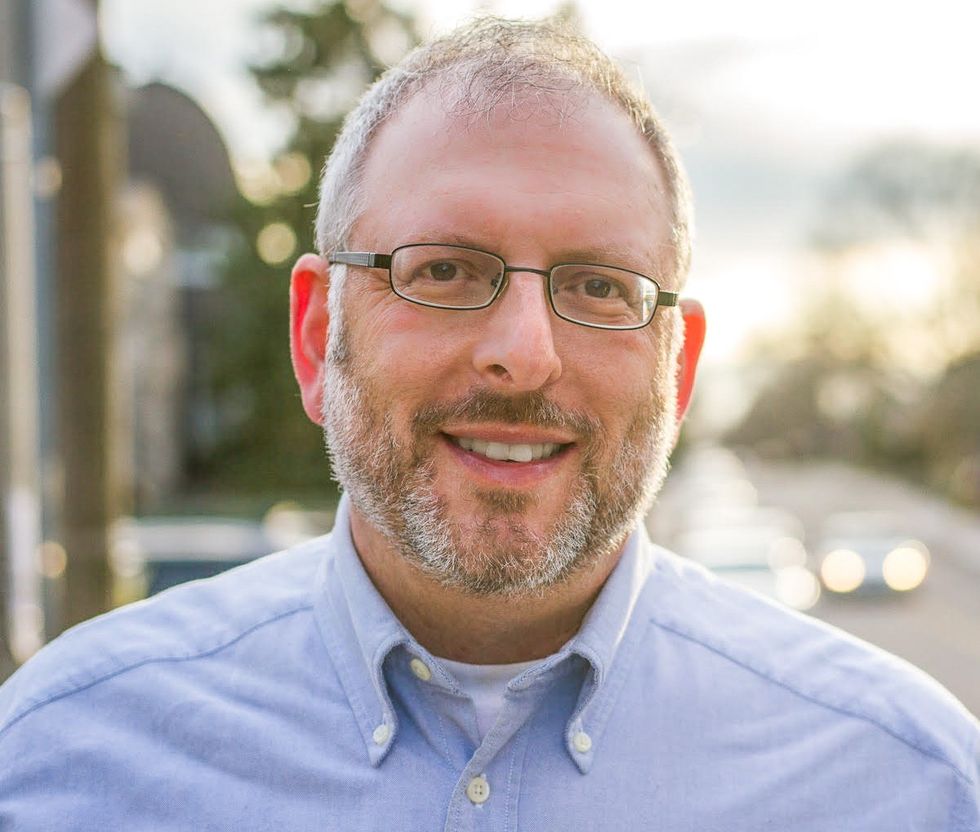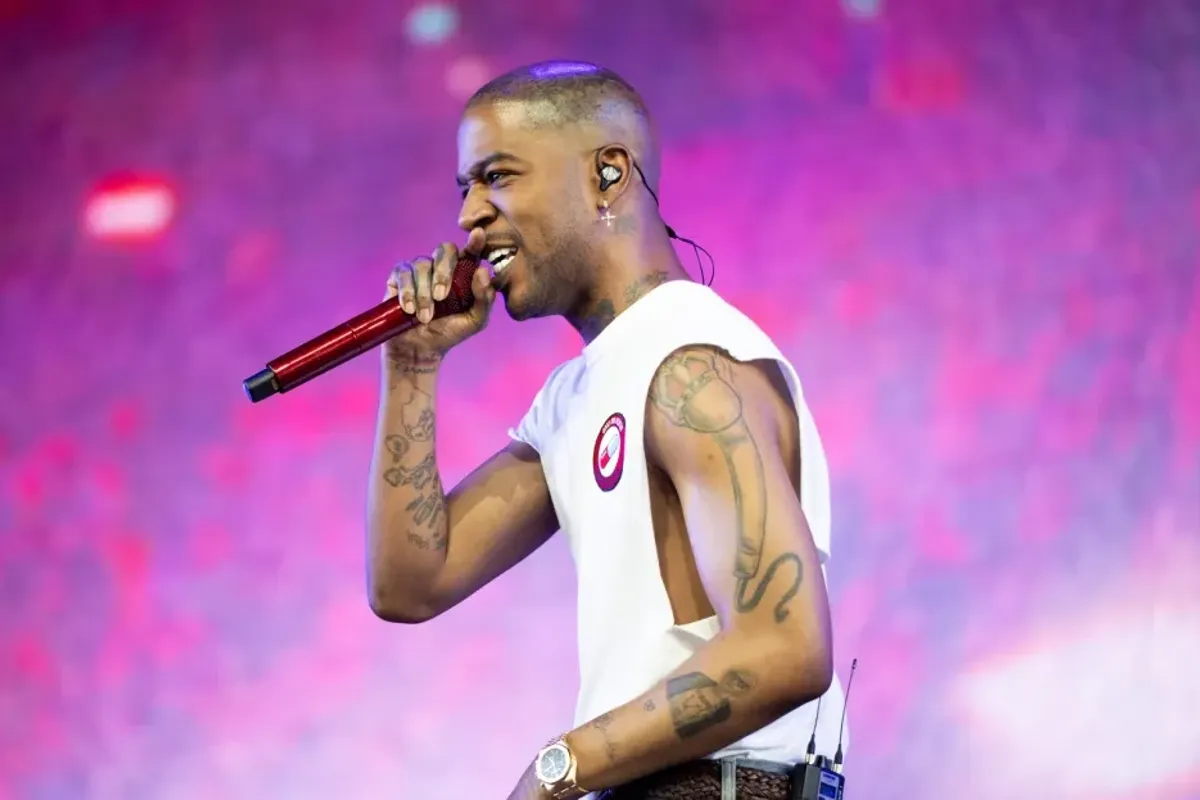
By Bill King
Daniel Rosenberg - Silent Tears.
This week’s podcast is given over to one remarkable man, Daniel Rosenberg. Daniel and I have been trading words for the past three years, mostly focused on the many world music projects he finds himself deeply immersed in. An eloquent wordsmith and a calming voice behind the microphone. A true musicologist.
Daniel approached me about a current project focused on Syrian music, and I thought back a few months to another deeply connected to a recent Grammy-nominated project he was involved with, 2018's Yiddish Glory.
Many of us are children born only months after World War 11, and the horror of the Nazi extermination of six million Jews is deeply etched in our minds. Not so much with the current generation fixated on tech and basic needs. I find our conversation a centrepiece of where we are globally, with the rise of autocratic governments and fascist organizations bent on silencing the voices of minorities and walking us back in time for a repeat playing of the racist tropes and anti-democratic sentiments.
There is a moment in this conversation Daniel tears up as he reveals Molly’s story. He understands the past and the victims and hears the soil speak and the circumstances that survivors depended on for their existence.
More on Daniel and Silent Tears.
Dan Rosenberg was born in Boston, Massachusetts, and grew up in Pittsburgh, Pennsylvania. From 1985 to 1988, he attended the University of Michigan and graduated with a Bachelor of Science degree.
Journalism
In 1995, Rosenberg launched the radio program Cafe International on WCBN-FM (Ann Arbor, Michigan) and WDTR-FM (Detroit, Michigan). The show, which was a "world music interview" program, featured all-star guests, including Babatunde Olatunji, Khaled, Ali Farka Toure, Baaba Maal, Ravi Shankar, The Klezmatics, Leonard Nimoy, Caetano Veloso, Susana Baca, Ladysmith Black Mambazo, Thomas Mapfumo, Capercaillie, Andy Palacio, Olodum, Carlinhos Brown, and scores of others.
In the 1990s, Rosenberg began travelling extensively, covering music from virtually every part of the world. His reports have appeared in The Rough Guides, The Times (UK), fRoots magazine, Islands magazine, NPR's Artbeat, PRI's Afropop Worldwide, and CBC Radio's Global Village.
Record producer
After hosting Cafe International for five years, he became frustrated that so much of the music on the program was almost impossible to find at local record shops, so he approached several record companies to release the folk music he covered as a journalist. Rosenberg has produced and written liner notes for over 60 CDs, including the Grammy-nominated Yiddish Glory: The Lost Songs of World War II, The Hidden Gate: Jewish Music From Around the World (2-CD set, Rounder Records) and Musica Negra in the Americas: A 2CD anthology of African music in the Americas (Network Medien, Germany). This collection was voted one of the best compilations of African music.
His other compilations include OXFAM's Think Global Christmas and over 40 compilations for The Rough Guide to World Music series. His most critically acclaimed collections include RoughGuide to the Music of Russia and Rough Guide to the Music of Central America.
SILENT TEARS: THE LAST YIDDISH TANGO
The music of Silent Tears is based on poems, testimonies, and writings of women who were victims of sexual violence and torture during the Holocaust. Some songs are from a project led by Dr. Paula David, a social worker at a Toronto Jewish care home who helped survivors process their trauma by writing collective poetry. Others are from Molly Applebaum, a Toronto-based author, who, during her adolescent years, was buried underground in a small wooden box in a barn in Poland during the war.
Set to music by an award-winning team of musicians led by the Payadora Tango Ensemble, the songs on Silent Tears: The Last Yiddish Tango tell the story of unimaginable violence experienced by women and children during the Nazi occupation of Poland.
ABOUT YIDDISH TANGO
“During the interwar period (1918-1939), Warsaw became the European capital of tango and the world capital of Yiddish tango,” explains Olga Avigail Mieleszczuk, a graduate of the Chopin University of Music in Warsaw, who has been described by the Times of Israel as the “Queen of Yiddish Tango.” “More than 3000 tangos were written during the interwar period in Poland. Many became hits, and most were written and composed by Polish Jews.” “Polish tango flows with Slavic-Jewish blood,” observes Mieleszczuk. “It is an Eastern European genre mixed with Jewish and Romani music. In 1939, with the outbreak of World War II, the golden age of Jewish tango ended.” Songwriter Andrzej Włast and composer Artur Gold were killed in Treblinka.
We created this album in the style of Polish tangos from the 1930s because the women whose stories we are retelling all grew up in Poland during this period. Sadly, they never got to dance to the popular music of that era in clubs, school gymnasiums or concert halls as their childhoods were spent on the run, in hiding, and in concentration camps.
THE BAYCREST HOLOCAUST SURVIVOR POETRY PROJECT
By Dr. Paula David
Three of the songs on this album are based on a group poetry project that began in the 1990s by Holocaust survivors at the Baycrest Centre for Geriatric Care, one of the largest Jewish care homes in Canada. During weekly meetings, members shared intimate stories, some of which they hadn’t even told their own families. As a social worker in charge of the group, my job was to help its members to process their traumas. 15 women met together for several years and created poems that reflected their collective experiences. They weren’t familiar with normal aging, let alone issues from age-related illnesses. Most of them were orphaned because of the Holocaust, so they never knew or cared for their own aging parents. Some suffered from dementia and Alzheimer’s, which caused their recent memory to fade, and long-term memory to become more vivid. Imagine the pain of being unable to recall the names of their beautiful grandchildren but left with only the memories of their brutally traumatic Holocaust experiences. In 1995, The Collective Poems were published, and the survivors became authors. Their poems have now strengthened into music, and the Silent Tears project continues to keep their memories and hopes alive.

















